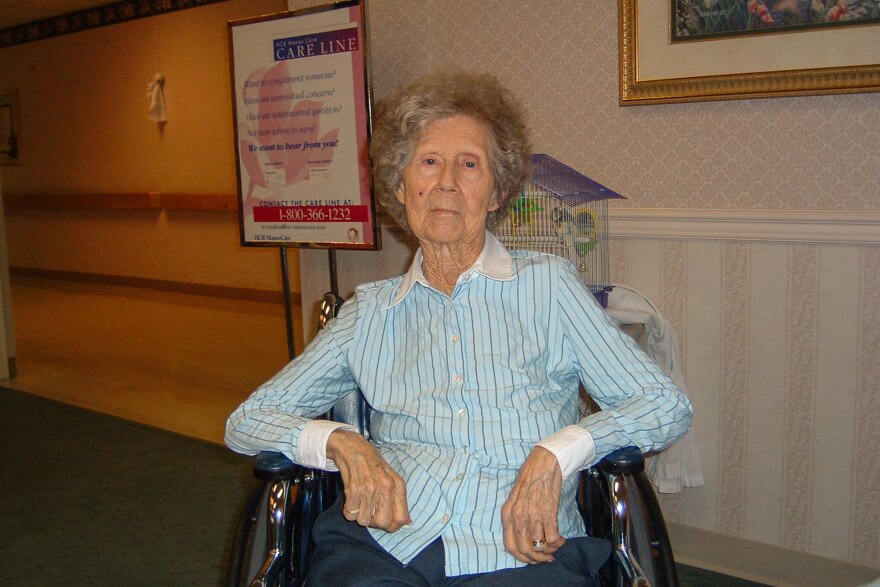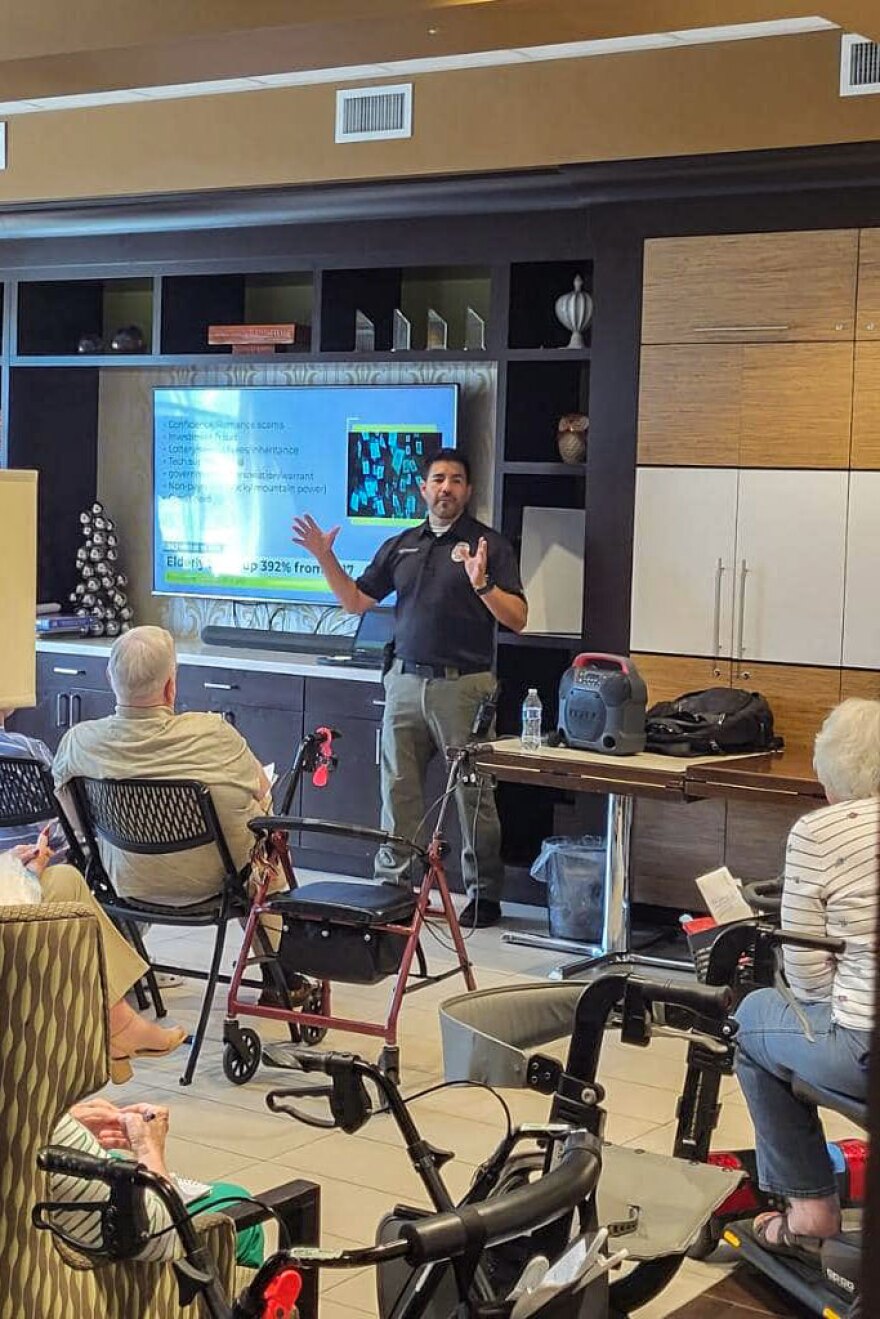Utahns are losing more and more money to scams. According to the Federal Trade Commission, people in the state lost $63.3 million in 2022, up almost 62% from the year before.
And older adults are often the target because they usually have more money.
When someone asked the late Velma Burkhart for money, it wasn’t in her nature to say no.
“She would always be willing to help if she could,” said her son-in-law, Grant Johnson. “I'd never heard her ever say a bad word about anyone. She was just a sweetheart.”
At the time, Burkhart was a small, 85-year-old woman who lived in Ogden and worked hard cleaning houses for people younger than herself. One day, her family noticed on a bank statement that a large chunk of money was missing.

“She had been giving this money to her grandson and daughter. And they had come up with all sorts of different schemes as to why they needed it,” said Johnson.
They would walk Burkhart down to the bank, Johnson said, and get her to take out money – for things like a throat operation.
“Her grandson said if he didn't have it, he was going to be paralyzed for life.”
They persuaded Burkhart to give them a total of $11,000. Johnson said the grandson bought a pickup truck the next day.
Soon after, she broke her pelvis and didn’t have the money to install handicap features in her bathroom or a ramp at her house. If not for the scam, Johnson believes Burkhart wouldn’t have had to leave and live in a rest home.
This happened years ago, but it caused a rift in the family that remains today.
Now, Johnson volunteers at senior centers with RSVP Davis County — educating them about fraud. His hope is that he can stop this from happening to someone else. And Utahns need a lot of help.
Utahns might be too trusting
“Utah has a reputation as being the affinity fraud capital of the United States,” said Alan Ormsby, director of AARP Utah.
Affinity fraud is any scheme that takes advantage of a pre-established trust or friendship between two people – like Ponzi schemes, multi-level marketing or romance scams.
It’s hard to put a number on how often this kind of fraud happens here, but the Utah Attorney General declared it a problem in 2019.
It could have something to do with Utah’s large number of members of The Church of Jesus Christ of Latter-day Saints. Ormsby said church members often assume that other people in their congregation are trustworthy.
“I think Utahns tend to be a very kind and polite society, and we tend to think about the best in people.”
Ormsby said his own grandpa got badly duped by a church leader. So whenever someone asks for money, he advises older adults to run it by another person first.
“Give it time. If it's a good deal today, it'll be a good deal tomorrow. It'll be a good deal a week from now,” he said.
It’s important to take that step back because scammers will try to take advantage of heightened emotions and rush victims into making a decision.
The rise of imposter scams
It’s not just friends and family. Strangers can build on this sense of trust to bilk people out of their money. Imposter scams are the most reported scheme in Utah, and it’s only going to get harder to know who to trust with the rise of artificial intelligence.
Scammers are starting to grab audio of someone’s voice online and run it through an AI program. Then they call a victim and make it sound just like a loved one.
Orem Police Detective Jared Weech gave this example: “Hey, this is your grandson, so-and-so. I just got arrested, I need some bail money.”
Weech hasn’t seen this in Orem yet, but he’s going around to senior centers preparing people for it. He advises keeping social media accounts private so scammers can’t get audio of loved ones or information about them.

AARP’s Ormsby recommends not answering the phone when it’s an unknown number.
“We always tell people, just let it go to voicemail and if it's important, you call them back,” he said.
Why victims don’t report
If someone does fall for a scam, it’s important to tell the local police. They might not be able to get the money back, but detectives send the information to the FBI so federal authorities can shut down the scam.
Weech estimates only about half of victims report, which he gets because of the shame that can come along with being scammed.
“We understand that they're a victim, but there's going to be other victims that will occur if they don't come forward and make us aware of them,” he said.
The FBI says another reason older adults don’t report being scammed is they’re worried about being perceived as incapable and losing their financial freedom. Nationally, however, older adults appear to fall for scams less often than their younger counterparts but usually lose more money, according to the Federal Trade Commission. The numbers are self-reported, so that may not be the full picture.
To preserve older adults’ autonomy while also keeping an eye out, Ormsby suggests putting someone on their bank accounts.
“There are some really good banking practices out there now where family members can be a viewer of the banking transactions, but they don't have any access to the transactions,” he said.
Family members should also watch out for any brand-new patterns of behavior.
Disclosure: AARP Utah is a sponsor of KUER.







